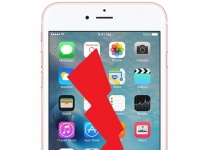 ZDNet’s Tech Broiler, by Jason Perlow, has a really good review of all the major ereaders for the iPad: iBooks, Kindle, Stanza, eReader, Kobo Reader, Ibis Reader and vBookz. For once it is clear that the reviewer actually knows whereof he speaks. Good job! Anybody who is new to this space should take a look at this.
ZDNet’s Tech Broiler, by Jason Perlow, has a really good review of all the major ereaders for the iPad: iBooks, Kindle, Stanza, eReader, Kobo Reader, Ibis Reader and vBookz. For once it is clear that the reviewer actually knows whereof he speaks. Good job! Anybody who is new to this space should take a look at this.
Here’s something that I didn’t know that I found in the iBooks portion of the review:
Unfortunately, iBooks doesn’t scale very well as the size of your EPUB library increases. While iBooks is perfectly fine for a few dozen or perhaps a hundred or so books purchased from the iBooks Store or synced into iTunes, it is extremely unwieldy once you approach 300+ titles loaded into the database.
In casual testing we uploaded over 1000 full-length EPUB novels to iTunes which we synced to the iPad. We encountered a number of connectivity/timeout issues with the iBooks sync on Windows, plus we discovered that iBooks performs badly when browsing in “Bookshelf” mode when many titles have been loaded into the application.
We found that the less aesthetically-pleasing “list” mode actually works better for browsing a large content library, but as the iPad only has 256MB of RAM, caching that many titles into the database still causes the app to perform very slowly, so I wouldn’t recommend using iBooks for storing your entire personal library in EPUB format.


































Which is pretty much in line with iTunes for music. It’s just not capable of handling large collections. I’ve got quite a bit of digital music (500+ GB) and I can’t use an iPod because iTunes chokes the living $h!t out of my computer’s fairly beefy resources as it tries to create the iTunes database, grab cover art, and whatnot. I always end up killing the process with the Windows three-finger salute. In fact, iTunes hasn’t completed the process on any of my machines since version 7-something. I suspect, though, that that has less to do with the quality of the software as much as it does with the size of my collection.
In any case, that iTunes struggles to manage a few hundred ebooks doesn’t come as a surprise to me.
Actually, I am a little surprised that it has such problems. 300+ books is *not* a large collection (way smaller than your 500GB music), and the meta-data isn’t that big. I can think of two things that might cause scalability issues for iBooks: managing that many thumbnail images (a naive implementation could have problems with that), and indexing the *contents* of the books (if it does that).
This just goes to show that a lot of advancement in technology is needed before e-Books really take off. This is probably just a sign in a long list of signs of America’s apparent discomfort with the e-Book: sales are still really weak here. But if you can’t store your whole library on an e-Book, or in the iBook, which is what most everyone wants (‘quick, easy, instant access or else it is not worth it’ seems to be the prevailing attitude) then why have it?
I mean, if you can’t store more than 300 books…that may be acceptable for the casual reader, someone who works and plays more than he/she reads, than that may be their market, but there are a lot more serious readers who want a lot of physical books to read and want to use e-Books only as research tools. I guess once the bugs are worked out you’ll see a lot more advertisement for iBook and the iPad as an eReader.
One thing that would have been nice would be including the yet to be released Blio in the mix. It is surely going to be a strong standout when it arrives, but even having a beta version for comparison would be interested. Let’s hope this article is updated once Blio is available.